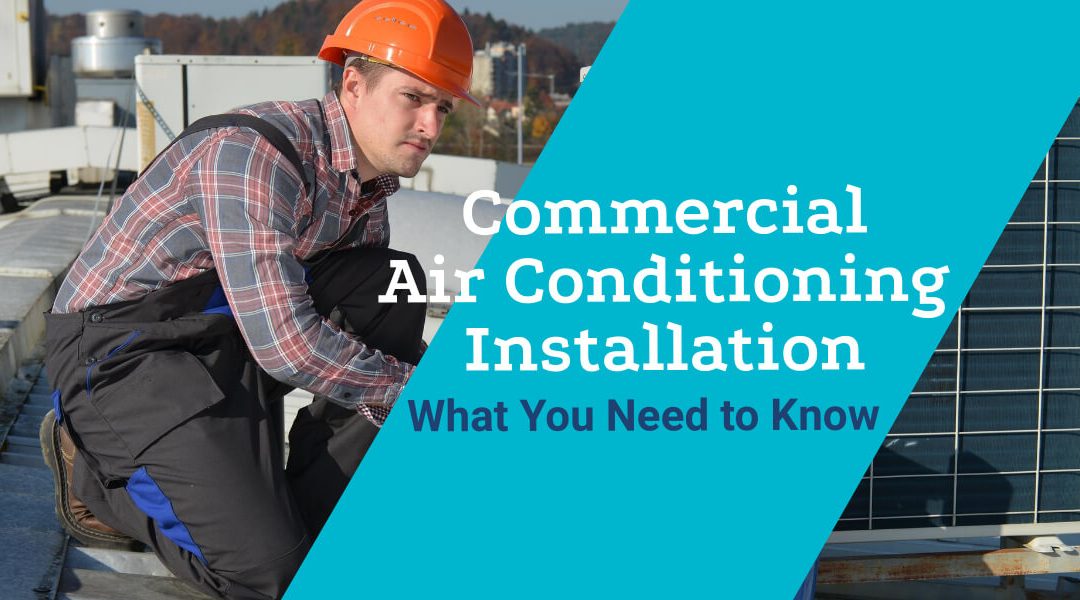Commercial air conditioning installation can be expensive when done incorrectly. Make sure you get the best value for your money. Your installers must determine the right type of airconditioning units for your commercial space to minimize your TCO and extend your unit’s lifespan. Read on to learn about the types of commercial AC units, installation costs and what to consider when choosing a contractor.
What type of air conditioner is best for commercial properties?
Living in Queensland, we are exposed to dry and warm climates year-round so you can find air conditioner units in most homes in these states. According to a report by Finder, 61% of QLD homes have an air conditioning system.
Homes and individual rooms apartments can be adequately cooled by small units. However, commercial properties like retail shops, offices and hospitals require units with greater cooling capabilities.
The following are some common types of air conditioners installed in commercial properties intended for housing, such as duplexes, short-term rentals, hotels and apartments.
Central Air Conditioner
Best for vacation rentals and housing units with multiple rooms, central air conditioners or ducted systems work by pushing cooled air through the ductwork and out of the vents. Most central air conditioners are controlled by a thermostat, with some models boasting smart capabilities such as voice control and automatic temperature adjustment. Ducted systems need regular cleaning. Learn more about duct cleaning.
Window Air Conditioner
Ease of installation and affordability make the window-type air conditioner an excellent choice if you do not have or plan on getting central AC for your condominiums or short-term rentals. They come in several sizes, and some models also have smart capabilities.
However, keep in mind that professional installation is essential, as they can fall out of windows and become a hazard.
These types of air conditioning units are NOT ideal for large commercial spaces and those that see a lot of traffic, such as malls, office buildings and hospitals.
Split System Air Conditioner
A split system air conditioner comprises two parts: the main outdoor unit and the indoor unit. The “split” refers to the number of indoor units: a single-split system only has one powerful enough to cool a small space like a boutique or a coffee shop. Meanwhile, a multi-split system can cool larger spaces. Strategic placement of indoor units will guarantee even cooling throughout large spaces like warehouses, malls and hospitals.
VRF or VRV System
A variable refrigerant volume (VRV) system, also referred to as a variable refrigerant flow (VRF) system, is a sophisticated air-cooling system consisting of an outdoor unit and two or more indoor units. Each individual unit utilises an electronic liquid expansion valve (LEV) to control the amount of refrigerant it uses.
The many advantages of VRF or VRF systems include installation flexibility for small spaces, zoned cooling, energy efficiency and quiet operation. This type of system can also be used for heating as well.
Factors That Influence the Costs of Installation
How much you must pay for professional air conditioning installation services depends on numerous factors. These include:
- Unit Capabilities: Air conditioning units are available in a wide range of price points, with large units requiring complicated ductwork typically being the most expensive. Large units capable of cooling expansive spaces like warehouses are also costlier, as are those equipped with smart technology, state-of-the-art filtration and energy-saving features.
- Size of the Space: This includes the height of the ceiling. Generally, the bigger the room, the larger your air conditioner needs to be. Large units with the cooling capacity required for commercial spaces are typically pricier than their lower-powered counterparts. It is important not to underestimate your cooling needs. If you opt for a unit that is too small for your space, it will have to work harder to cool it. While your upfront expenses might be lower if you buy a small unit, you would eventually end up paying more for electricity.
- Method and Quality of Installation: If you already have the required components for the installation, such as existing ductwork in your building or holes already cut into the walls of apartment rooms, you will be able to cut costs on the installation. On the other hand, a completely new installation or an upgrade to a different kind of system will likely cost you more.
A professional installer will also need to design your system to ensure it meets your space’s cooling needs. Keep in mind that it is critical not to try to cut costs on air con installation by hiring unvetted or inexperienced installers. Proper installation is crucial to ensuring that your air conditioners function correctly for many years and to avoid potentially dangerous problems such as faulty wiring.
Get a Quote on Air Conditioning Installation
Having air conditioning installed in your commercial property is a must for maintaining a comfortable indoor climate for your employees as well as for improving airflow. Additionally, air conditioning units help filter out some pollutants and contaminants, keeping both consumer goods and people inside your premises safe. If you are planning to have an air conditioning unit installed, it’s best to be informed of your options.
HP6 is a trusted provider of residential, commercial and industrial HVAC&R solutions, serving clients across Queensland and New South Wales. To get a quote or learn more about our services, contact our office on 1300 HP6 NOW (1300 476 669) or fill out the form below!

